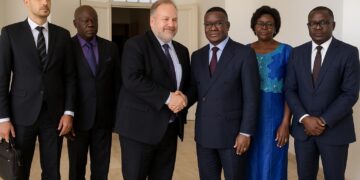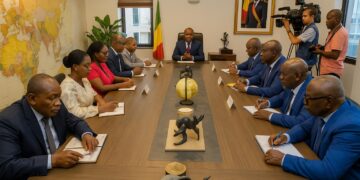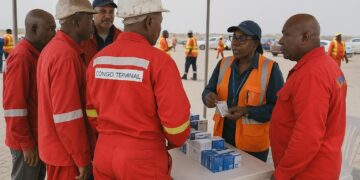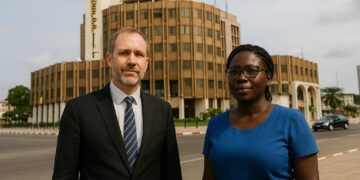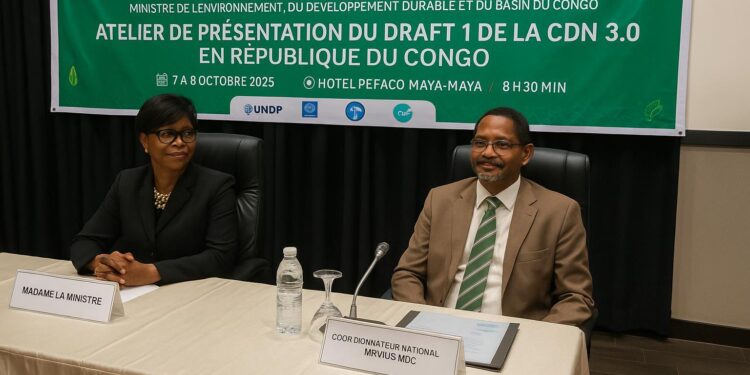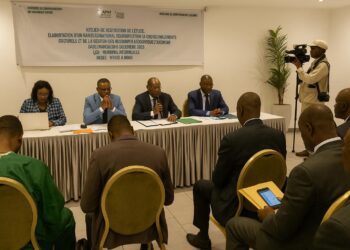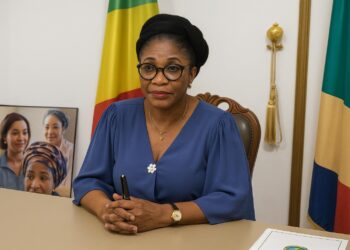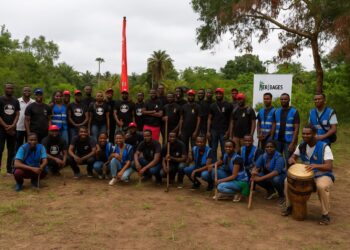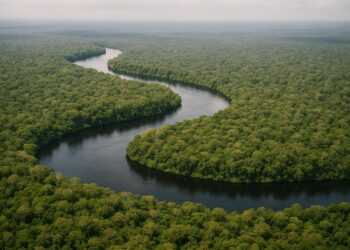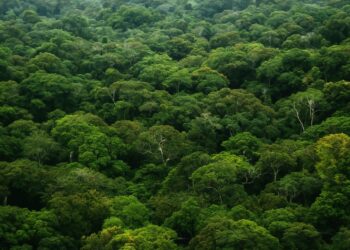Stakeholders refine Congo NDC 3.0 roadmap
In Brazzaville, negotiators, bankers and civil-society specialists met on 8 October to examine the first draft of Congo-Brazzaville’s Nationally Determined Contribution 3.0, the document that will anchor the country’s updated commitment under the Paris Agreement for the decade ahead.
The workshop, convened by the Ministry of Environment, Development and the Congo Basin, distilled six forward-looking recommendations designed to translate pledges into action and to avoid the funding bottlenecks that slowed down implementation of the previous NDC 2.0.
Six priority recommendations for swift delivery
Participants agreed to finalise the inventory of mitigation and adaptation measures, accelerate the integration of robust data from agriculture and allied sectors, and weave the session’s technical suggestions into the revised text that will be tabled at COP30 in Belém next November.
Green budget and banking sector alignment
A recurring theme of the debate was finance. For transparency, delegates requested a direct exchange with officials from the Ministry of Finance on emerging plans for a national green budget, intended to align expenditure frameworks with carbon-smart priorities and provide investors with greater policy visibility.
The gathering also urged that the draft be shared with the Professional Association of Credit Institutions of Congo so that commercial banks can anticipate regulatory signals, calibrate sectoral lending and explore sustainability-linked instruments that may be eligible for concessional blending once the NDC enters into force.
UN backing bolsters financing prospects
United Nations Resident Coordinator Abdourahamane Diallo told the closing ceremony that the new NDC must become “a catalyst for public and private finance”, positioning Congo as a credible platform for capital seeking high-integrity nature-based solutions and resilient infrastructure.
Diallo insisted the document should map concrete actions across priority value chains, reach down to Indigenous communities and offer transformational yet realistic pathways for cutting greenhouse-gas emissions while shielding vulnerable households from climate shocks.
Minister outlines transition and diversification
Minister Arlette Soudan-Nonault echoed that ambition, describing the draft as a solid foundation for the ecological transition and for the broader diversification agenda championed by President Denis Sassou Nguesso.
“We leave this room not with good intentions but with a shared, actionable road map,” she stated, signalling that inter-ministerial coordination would intensify in the coming quarters to convert proposals into budget lines, guidelines and measurable indicators.
Learning from NDC 2.0 challenges
Lessons from NDC 2.0 still loom large. Delegates recalled that insufficient financing and patchy sectoral data delayed several flagship projects, from reforestation corridors to clean-cooking initiatives, underscoring the importance of a stronger monitoring framework and early engagement with potential donors.
Data and agriculture at the core
Data collection emerged as a technical priority. Experts pushed for digital tools that can capture seasonal changes in crop yields, forest biomass and hydrological cycles, enabling the climate unit to feed real-time indicators into the national inventory and reassure partners about the robustness of baselines.
Agriculture is central because it absorbs roughly two-thirds of the workforce and remains exposed to rainfall volatility. By accelerating adaptation measures—such as climate-smart seed distribution, water-harvesting schemes and extension services—the draft aims to lift rural productivity while curbing land-use emissions.
Private investment and transparency signals
Private companies scanning the Congolese market see opportunities in renewable energy, agro-processing and carbon services. A clarified NDC, backed by a green budget, could unlock concessional credit and blended finance that reduce risk premiums and make pipeline deals bankable.
Transparency provisions are equally significant. Delegates suggested periodical public dashboards tracking emission trajectories, fiscal allocations and project milestones, a move likely to satisfy rating agencies and foster the trust required for sovereign or sub-sovereign green bonds.
Countdown toward COP30 showcase
All eyes now turn to the run-up to COP30, where Congo intends to showcase its revised targets and the implementation pathway derived from this workshop. Success in Belém would signal to partners that Brazzaville is ready to translate forest stewardship into investable climate assets.
For policy makers, the next six months will revolve around costing, sequencing and communicating each measure so that the final NDC 3.0 can stand as both a diplomatic pledge and a domestic planning instrument capable of steering Congo toward a resilient, low-carbon, diversified economy.
Forest assets and carbon markets
The Congo Basin’s forests, covering nearly two-thirds of national territory, offer a comparative advantage. By embedding rigorous monitoring, reporting and verification in the NDC, officials hope to attract payments for ecosystem services and voluntary carbon transactions that can bolster foreign-exchange reserves without expanding public debt.
Inclusive process and technical next steps
Civil-society representatives at the workshop welcomed the openness of the process, noting that early consultation can avert future delays in land-tenure clarification and safeguard traditional knowledge that underpins community-led conservation, a stance that resonates with international funders prioritising social inclusion.
Technical teams will now refine sectoral baselines, cost curves and emission factors, working closely with Congo’s statistics office and universities. The ambition is to deliver a peer-reviewed annex that underwrites credibility in multilateral negotiations and equips domestic planners with granular, district-level decision tools and can guide targeted climate grants.







